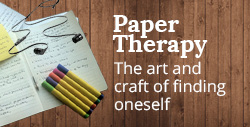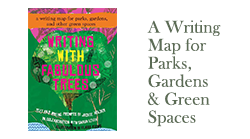Quiet By Nature
 Tomorrow I begin working with a new group of coaches who I will be training to become coaches or increase their effectiveness as coaches and mentors.
Tomorrow I begin working with a new group of coaches who I will be training to become coaches or increase their effectiveness as coaches and mentors.
In my world of coach training no two courses are ever the same. Weeks before the course begin ideas and themes are already pouring through my mind. If things aren’t good with me, if ‘m practicing what I preach as a reflective practitioner then I’ll capture these ideas securely in a notebook or index card ready for when I sit down and go over the course content and write new notes to support the programme. When things are bad which often they are, great ideas and connections don’t get captured or if captured disappear amongst the flurry of paper my work spurts out everyday.
But arriving on a programme for me as the trainer is a wonderful thing. In an instant it is a reminder of all the principles and values that underpin who I am and how I work as a coach in these modern times.
On my coach supervision training we were reminded often that who we are is how we coach. It is interesting to watch new coaches in a room and how they respond to the first day’s learning. There are those who come and immediately the more non-directive, solutions focused approach and style instantly resonates with their preferred way of thinking and working. Then there are those who lean more towards the logical and the rational who frown or look quizzical and try to get hold of some theory or model that will anchor them. Make them feel that they have a firm footing and know more about the ground they are standing on.
It’s a challenge for me to be willing to unlearn all that I know, the knowledge and books on coaching and mentoring that I’ve devoured and just sit or stand and give myself permission to be.
The challenge is to be really present and available to the group. To be really open and to hear beyond the noise of my own interpretations what they are thinking or feeling and wanting from this experience.
It’s a stretch to not try to impress them with my background the years or hard toil and experience that has brought me to this point. It is hard to let go and embrace that point of not knowing that in a coaching conversation can take us together with the person we are working with into unfamiliar territories, which often yield rich and fertile responses.
How can I allow all of this to seep out from behind the coaching mechanics of the GROW Model, open and closed questions, the differences between coaching, mentoring and counseling.
My answer is to trust, to be brave, to be creative and to relax. These are no better suggestions I would offer to a coach trainer. I am looking forward to diving in and seeing what treasures are to be reclaimed by the group over the course of our time together over the next four months.
By making the time to unravel my thoughts I am already in that space of taking quiet time to hear the sound of my own voice. I am following the trail of my own thoughts. I am sensing the seeds of my own creative and intuitive processes, which I will in turn transfer into our work together.
At some point in our time together on the first day the group will experience five minutes of silence together. We will relate this in the context of reflective practice and mindfulness and how this impacts on the coaching and mentoring relationships and conversations.
Each new programme I try out different ways of engaging with silence. On Wednesday I may well try this activity I came across from the writer Kathleen Norris whose work I have deeply enjoyed over the years. This activity was actually recorded in a book I was reading called, Like A Tree by Jean Shinoda-Bolen.
Here’s the excerpt of Norris experience sharing the activity with a group of children. I think it also holds value sharing it with a group of adults so I will give it a try.
“Norris told them that when she raised her hand they could make all the noise they wanted to, and when she lowered her hand they had to stop. The rules for silence were equally simple, when she raised her hand, they had to sit and make no noise at all. Then they were to write about both experiences.
What she found was that making noise resulted in very little originality, while making silence liberated the imagination in so many of the children… One boy came up with, “as slow and silent as a tree.”
Another wrote that, “Silence is a tree spreading its branches to the sun.”
By using their reflective journals the coaches can then write about their own experiences and relationship with silence.
How fast does their mind and thoughts race when in conversation?
Where and when do they make time for quiet or silence in their week?
How comfortable am I or aren’t I with silence?
One of the pre course reading articles on our coach training programmes is an article on, The Use Of Silence in Coaching by Andy Rankin. It always provokes a strong for and against reactions amongst a newly gathered group of coaches.
The article suggests ways in which coaches can and must cultivate more silence into our work as coaches to lessen the distractions of the busy mind and the pool of techniques we can sometimes consciously and unconsciously off load onto our clients. I suggested reading this article and working through Rankin’s questions. Click here for a copy of the article.
I agree with Rankin’s suggestions for cultivating silence:
With everyday conversations resist the urge to interrupt or tailgate (finishing a sentence for the other person) and allow it to pass – keep listening and notice what happens.
Forego the notion of being an expert, be a fellow human being holding a profound listening space
Cultivate a philosophy of “being interested” rather than “being interesting”
Study literature in this field
Take times of personal reflective quiet time to discover your own centeredness
Join a meditation class
With a colleague practice just being in each other’s silent company – paying full attention to the other person with no agenda other than just being together. Discuss the experience
Review your progress in a journal
Review with a colleague or supervisor
Rankin, I. (2008) The Use Of “Silence” in Coaching. The International Journal of Mentoring and Coaching
Reading about silence outside of coaching texts is also another suggestion. In the book, Write Yourself, writing practitioner Gillie Bolton has a number of writing prompts on silence. Here’s one of them:
‘Write about something silent; give it words (e.g. a little child’s expression when given her comfort cloth), a wilting flower.”
Bolton, G. (2011) Write Yourself: Creative Writing and Personal Development. London. Jessica Kingsley Publishers.
When we make time for quiet or silence we observe and sense more. We listen and discern from a different space inside ourselves. We see more than is visible. We hear beyond what is said. But we cannot develop this ability with others without deepening it as a practice with ourselves.
Today I will leave you to ruminate on this quote from the cultural anthropologist Angeles Arrien. “ Where in your life did you become uncomfortable with the sweet territory of silence?” Photo credit:skierscott
Categories Coaching | Tags:







Leave a Reply
By submitting a comment here you grant Jackee Holder a perpetual license to reproduce your words and name/web site in attribution. Inappropriate or irrelevant comments will be removed at an admin's discretion.